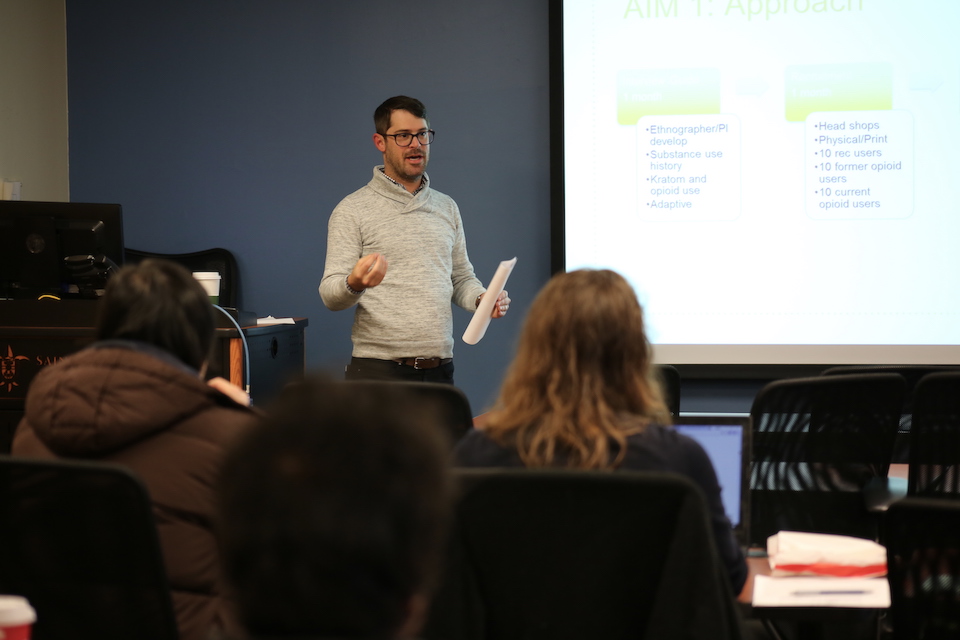SLU Student Weighs in on Opioid Epidemic
In an interview with Vice, Matthew Ellis explains why recent efforts to control the supply of prescription drugs may have contributed to the increasing numbers of heroin users.
“Using the balloon analogy, when you squeeze one side, another side expands,” Matthew Ellis, a doctoral student in behavioral science and health education at SLU's College for Public Health and Social Justice, recently told Vice to explain the “The Terrifying New Trend in Heroin Addiction.”
That “terrifying” trend points to heroin users going straight to illicit drugs and skipping the “traditional” path by first experimenting with pharmaceutical drugs.
In order to fully address the opioid epidemic in the United States, you not only need
to cut off supply, but you need to treat demand, Ellis says. Most people don’t choose
to do drugs just to “get high,” but to self-treat–get relief from stress, anxiety
or past traumas–or because of factors such as poverty, unemployment or mental illness.
Ellis was interviewed by Vice because of his “day job” as senior research coordinator
at Washington University in St. Louis, where he works as a program director of the
Survey of Key Informants’ Patients (SKIP) Program under the Researched Abuse, Diversion
and Addiction-Related Surveillance (RADARS) System, the largest and most comprehensive
international opioid surveillance system.
A master’s-trained psychiatric epidemiologist, Ellis has been working in the field
for more than 10 years, coordinating national research studies monitoring prescription
and illicit opioids (with a focus on abuse-deterrent formulations) and publishing
landmark papers in the New England Journal of Medicine and JAMA. But, in 2016, he chose to go back to school to pursue a doctorate degree in public
health studies at Saint Louis University with Enbal Shacham, PhD., as his faculty mentor.
“I want to get out from behind a computer to a more ‘boots on the ground’ role,” he
says. Ellis chose Saint Louis University because of its social justice focus. “SLU
does not helicopter into communities; it is focused on community building and trust.”
He sees a lot of opportunity to help St. Louis community organizations from a systems-perspective,
using his experience with data collection and monitoring to inform decisions and reduce
the emphasis on programs that “look good on paper, but don’t provide meaningful results...I
don’t like seeing inefficiencies,” he adds.
About the College for Public Health and Social Justice
The Saint Louis University College for Public Health and Social Justice is the only academic unit of its kind, studying social, environmental and physical influences that together determine the health and well-being of people and communities.
It also is the only accredited school or college of public health among nearly 250 Catholic institutions of higher education in the United States. Guided by a mission of social justice and focus on finding innovative and collaborative solutions for complex health problems, the College offers nationally recognized programs in public health, social work, health administration, applied behavior analysis, and criminology and criminal justice.
